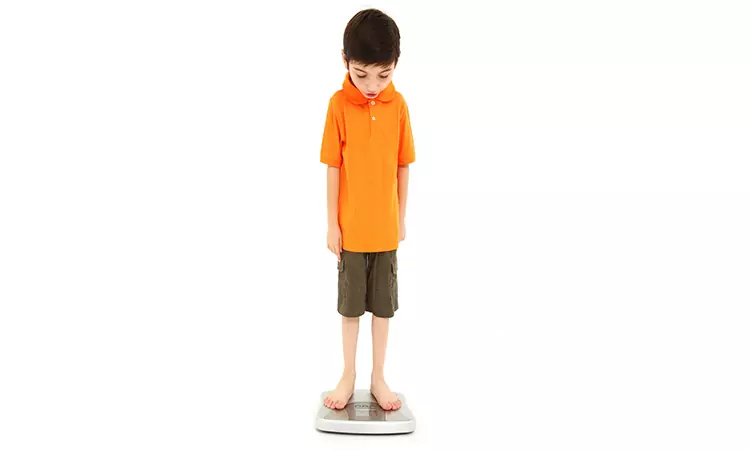

How to help your thin toddler gain some weight
Children typically gain weight steadily as they grow, supporting their development. However, some toddlers may not gain sufficient weight due to inadequate calorie intake or nutritional imbalances. According to pediatric nutrition experts, this is often a result of insufficient food consumption to meet energy needs. With guidance from healthcare professionals and a well-planned diet, toddlers can maintain a healthy weight and avoid risks linked to poor growth.
How Do You Know If Your Child Is Not Gaining Enough Weight?
If you are concerned that your child may be underweight, first consult your child’s physician. After confirming that your child has no medical concerns, you can plan for weight gain in a healthful way. There are different kinds of weight gain food for babies that are available. Food high in fat and added sugars might add to the weight, but they will not provide the nutrients which your child needs to build strong bones and a healthy body.
Poor weight gain can lead to low levels of vitamins and minerals in the body and learning problems in school.
How Can You Help Your Child Gain Weight?
By making small changes to your child’s meals and snacks throughout the day, you can increase the amount of calories they consume which will help to gain weight. The following are some useful tips:
Tips To Help Your Child Gain Weight
- Include good sources of protein in their diet. This can include eggs, peanut butter and other nut butters, bean soups, and reduced-fat or full-fat milk, yogurt and cheese.
- Whole-wheat bread and pasta, mashed, baked or oven-roasted potatoes; sweet potatoes, corn, and hot cereal are excellent carbohydrate options.
- Prepare hot cereal with milk or soya milk instead of water for added calories and nutrients. Nuts, seeds and avocados are healthy fat sources to help your child gain weight. Try adding nuts and seeds to cereal, salads, pasta and vegetables. Add avocado slices to sandwiches, burgers and salads or as a topper for scrambled eggs.
- As far as possible cook vegetables, meat, chicken and fish in olive or canola oil. When planning snacks, be sure they provide additional calories along with good taste so your child will love it.
- Along with eating the right food, it is important that mealtimes are pleasant and not hurried. Involve your children in meal planning, shopping and food preparation so they get encouraged and take interest in food and eating.
- Doctors may recommend a high-calorie supplement drink for picky and choosy eaters who refuse to add new foods to their diet.
- Serve smaller portions as children have small stomachs. A large portion of food may be too much for your child and he/she may feel discouraged.
- Choose nutritious, high energy foods and beverages
- Wait till the end of your child’s meal or snack before you offer fluids. Fluids can fill up children’s stomach quickly. When you offer fluids, go for high calorie drinks such as milkshakes and fruit smoothies made with whole milk or high fat yogurt for more calories.
- Choose high calorie foods like meat, chicken, fatty fish like salmon and meat alternatives like tofu, cheese, and full fat yogurt.
- Pressurizing your child to eat is not a good idea. Children will eat when they are hungry. Your child should decide how much to eat.
- Don’t rush meal times. Slow eaters need more time to eat.
- Eat meals away from the television or computer to add interest and help the child focus on eating.
Are Nutritional Supplements Required For Children?
Nutritional supplements can support weight gain and growth by providing additional calories and essential nutrients. However, they should only be used if advised by a pediatrician, who will consider your child’s age and nutritional needs. Experts emphasize offering a balanced diet with whole, nutritious foods before turning to supplements.
When to See a Doctor?
If your child appears to eat adequately yet fails to gain weight, it is important to consult a pediatrician. There may be an underlying medical condition that requires professional evaluation.
If your child is getting enough calories but still does not seem to be gaining weight, then consult a pediatrician to discover any underlying conditions.
Homeopathy For Weight Gain In Children
Being completely natural and free of side effects, homeopathy is the best and the safest way to help gain normal baby weight. Homeopathy medicines help improve food absorption and reduce the tendency of infections, thus working effectively to deal with the different reasons for not gaining weight. It also helps to improve your child’s immune system.
At the end of the day, a healthy diet is the best way to help your child achieve an ideal weight. Choose nutritious, high energy food and beverages to help your child lead a healthy and happy life!
Key Takeaways
- Children might not gain enough weight if they don't eat enough food to meet their needs.
- To help your child gain weight, include protein-rich foods like eggs, peanut butter, and full-fat dairy in their diet.
- Offer high-calorie foods like whole-wheat bread, potatoes, avocados, and use oils like olive or canola for cooking.
- Make mealtimes pleasant and involve children in meal planning to encourage interest in eating.
- Consult a doctor if your child isn't gaining weight despite eating enough, as there might be underlying issues.

